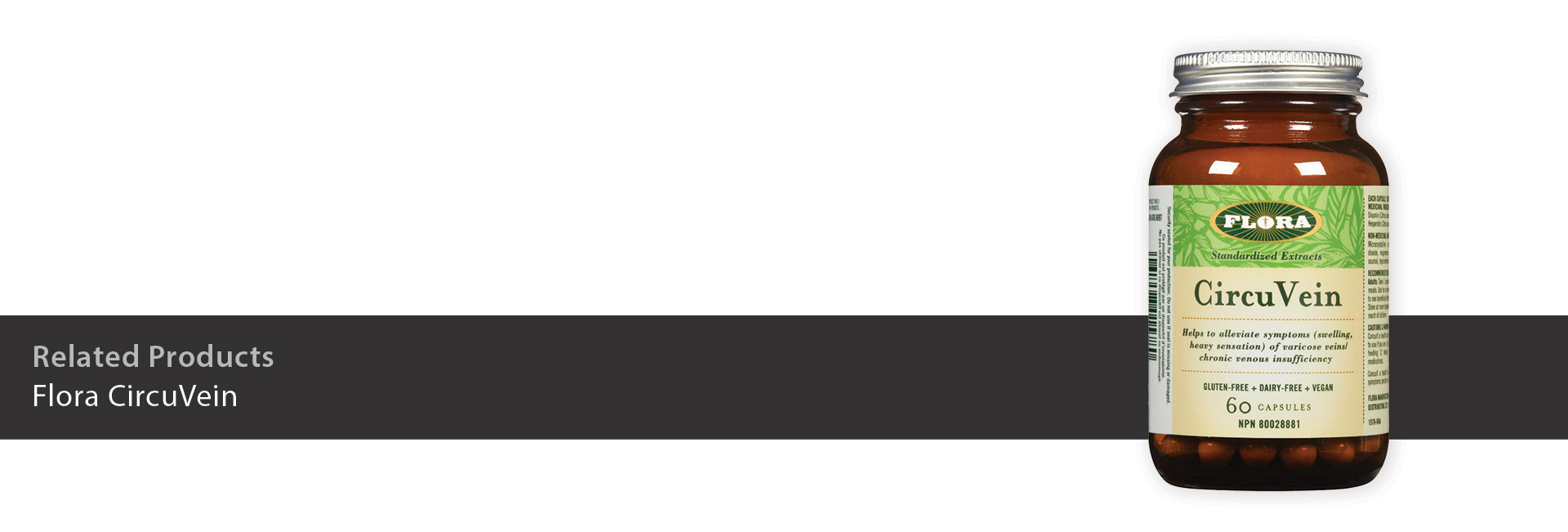Say Goodbye to Varicose Veins
Varicose veins bulge in uncomfortable and unattractive ways. The right diet, supplements, and exercise can help.
Just like the gut, veins damaged by inflammation can become overly permeable or leaky. Veins damaged by oxidation and inflamed by free radicals lose resilience against the pressures of fluid and gravity. When blood pools deep in the leg, we call it chronic venous insufficiency and when the superficial veins swell, we call them varicose veins.
Eat an anti-inflammatory diet. Focus on colourful whole foods and get enough vitamin C and essential ALA omega-3 fat (flax oil).
Get minerals like magnesium (pumpkin seeds), sulfur (meat, onions), and silicon (grains, alfalfa sprouts) to build the connective tissue that veins, skin, hair, and nails are made from. MSM provides sulfur and can reduce exercise-induced pain. Florasil is a supplement that provides natural silicon and other minerals such as magnesium.
Keep moving. Avoid long-standing to reduce pressure on your veins and raise your legs when sitting or reclining to move fluid upward. Calf muscle contractions can pump lymph fluid around the body, preventing edema in the legs. Apart from compression stockings, choose clothes and body positions that do not constrict the body.
Herbs like butcher’s broom and hawthorn support circulation. Compounds in hawthorn may relax blood vessels, while butcher’s broom can constrict them and may be better for those with low blood pressure.
Antioxidants from astaxanthin through to zeaxanthin help veins resist oxidative stress, but these standardized ingredients are most protective against varicose veins:
- Diosmin and hesperidin citrus bioflavonoids have the most evidence for varicose veins. CircuVein by Flora uses the exact ratio proven in rigorous human clinical trials to prevent swelling and bad circulation. The bioflavonoids are micronized so that they absorb and integrate right into the walls of blood vessels to reinforce them, improving their structure, tone, and integrity.
- OPC anthocyanins are unique active ingredients best for reducing the harm done to vessels by the oxidation of cholesterol. OPCs are found in grapeseed extract, but not all grapeseed products contain a proven or effective amount. Check for patented extracts (such as Beyond Grape Seed®) made with the Masquelier method or look for OPCs mentioned on the label.
A healthy lifestyle, including regular movement and a nutrient-dense, anti-inflammatory diet, can help to prevent varicose veins. Micronized diosmin and hesperidin in CircuVein from Flora is the safest and most proven supplement to improve the appearance and discomfort of varicose veins.
